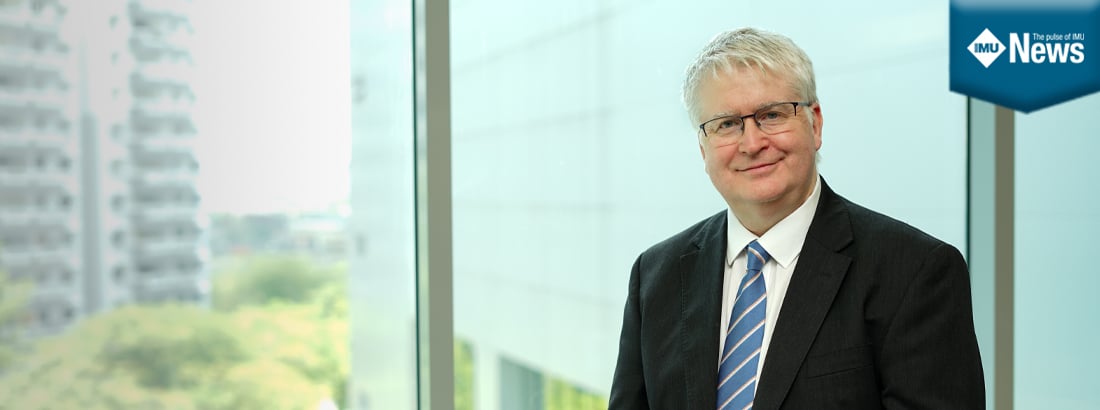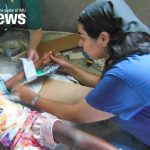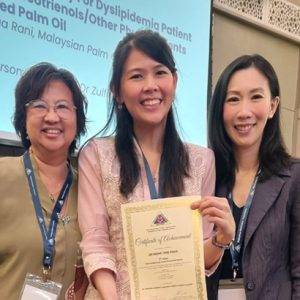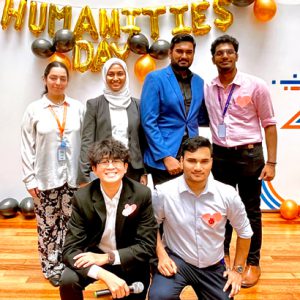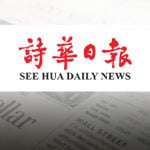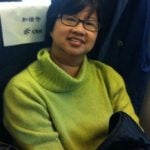Life is always filled with surprising turns and sometimes they bring us full circle. For Professor Ian Symonds, this was exactly the case. Born in Adelaide, South Australia Prof Symonds moved to Nottingham in the UK when he was 12. He completed school there and later qualified in Medicine at Nottingham Medical School in 1983. “I then completed my specialist training in the UK in obstetrics and gynaecology and worked as a consultant and honorary senior lecturer in Derby,” he says. Consequently, he moved to Newcastle, New South Wales in Australia in 2004 as the Professor of Obstetrics and Gynaecology, later being appointed as Dean of Medicine there. His next step then brought him back to where he grew up: “I moved back to Adelaide in 2015 as the Dean of Medicine for the University of Adelaide – life had come full circle!” Here, Prof Symonds, IMU’s Dean, School of Medicine and Professor of Obstetrics and Gynaecology, shares some insights to his motivations, inspirations and aspirations.
| What led you to your career in academics? |
|---|
| I did a BMedSci as a medical student and I loved the process of research. I was a keen teacher as a Junior doctor but it was probably undertaking a research degree later that really locked me into an academic career. Other than that, the most important decision was when I moved my family to Australia to take up a Chair in New South Wales. That opened up many new opportunities in the academic field |
| Did you practice medicine before you became an academic? |
| Yes, I trained initially as a physician then as an obstetrician before I held my first academic post although I took time out of my training to complete my studies as a medical doctor. |
| Why obstetrics and gynaecology? |
| I love that in obstetrics and gynaecology you combine the diagnostic challenges of medicine with the practical skills of surgery. For example, when you are performing an emergency C-section for a baby in distress you know that what you are doing, as part of a team, will be the difference between whether that child has a healthy life ahead of them or not. I remember one patient I had in Australia who came to see me a few weeks after going home. She had suffered complications from delivery and had almost died. We went over what had happened and just as she was about to leave the office she turned and said, “Before I go, I just want to thank you for saving my life.” There aren’t many jobs where you get that kind of feedback! |
| You have a wealth of experience in the field of medicine and education. What were your benchmarks of success? |
| I think that would have to be getting feedback from our partner health organisations telling us that our graduates are excellent doctors. There’s nothing more satisfying than knowing you have contributed to the education of the next generation of doctors. |
| What brought you to IMU? |
| I have been associated with IMU as the Dean of two Partner Medical Schools for more than 10 years and loved visiting KL. I have always loved the hospitality of the people and the multicultural nature of the place and I have a huge respect for what IMU has achieved and this was an opportunity to be part of that. Plus I love warm weather and eating good food, so KL is the perfect place for me. |
| What is the most rewarding moment you have experienced in your job? |
| Seeing students at graduation and having a patient thanking me for saving their life! |
| Who is your role model and why? |
| One of my role models is Prof Sabaratnam Arulkumaran, who I worked with in Derby, Arul’s ability to provide calm leadership is like no one I have ever worked with before or have worked with since. The other is my father, Prof Malcolm Symonds who has supported and encouraged me throughout my career. Our careers have followed a very similar track as Dad was also a Professor in Obstetrics and Gynaecology and spent several years working in Malaysia at the end of his career. He always enjoyed his time here and encouraged me to to take the position at IMU. |
| How will you apply your philosophy of leadership to the IMU School of Medicine? |
| I have a collaborative leadership style – I believe that it is important to have a clear vision of what you want to achieve but it is also essential to take the people you are leading with you. A good leader is measured by the success of the group they lead. |
| What are some of your goals for the School’s future? |
| In my time at IMU, I would like to ensure that excellence in teaching continues. Of course, everything is a team effort and I hope I will be able to attract and support early career academic staff to the University and together we can develop research strengths. And just as importantly, I would want to make the School a place people look forward to coming into work at each day! |
| What would you want to champion in IMU? |
| There are always challenges for any medical school in selection, assessment and maintaining contemporary teaching. I would like to see us continue to build on the international reputation for excellence in medical education and look to what skills our graduates will need 20 years from now. |
Prof Ian Symonds has led several major curriculum change processes and innovations in both national and local settings and played an active role in research projects on inter-professional learning, widening access to medical school, student selection, workplace-based assessment and the use of e-portfolios in medical education. He has published a number of undergraduate textbooks and has a Masters Degree in Clinical Education. He has been a chief investigator on studies on the treatment of dysfunctional uterine bleeding, genetics of pre-eclampsia, infrared spectroscopic analysis of cervical smears, detection of ovarian cancer using Tc-99 labelled monoclonal antibody, innate immunity to Chlamydia, the psychosocial aspects of maternal age, genetics of endometrial cancer, growth restriction and preterm labour, attachment disorders, cervical screening, fetal ECG ST-Analysis and induction of labour. He has held a number of national leadership roles including the presidency of the Medical Deans of Australia and New Zealand and is the current Vice President of the Royal Australian and New Zealand College of Obstetricians and Gynaecologists. He is currently Dean, School of Medicine and Professor of Obstetrics and Gynaecology at IMU.




